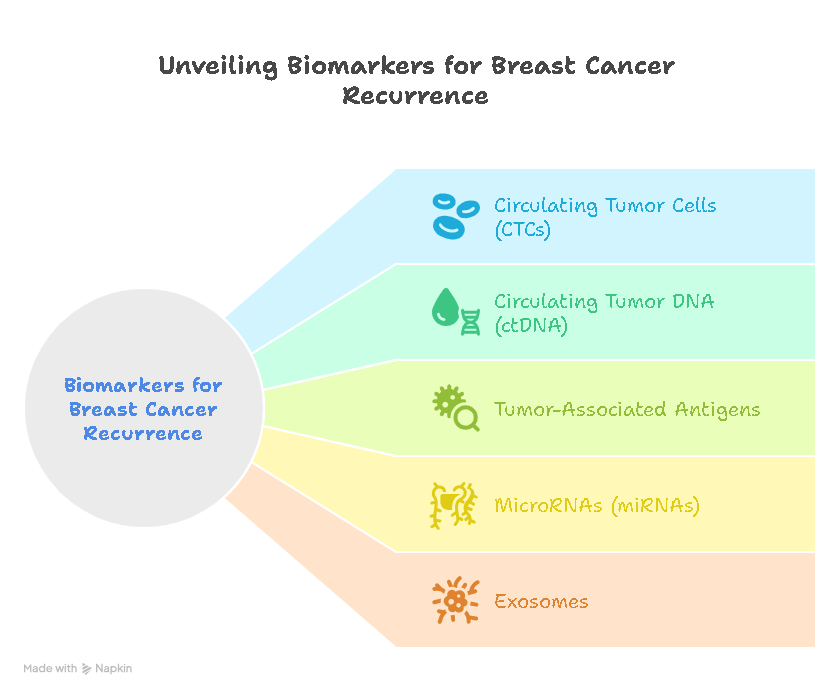Table of Contents:
- Introduction
- What is Chronobiology?
- The Circadian Rhythm: Our Internal Timekeeper
- The Role of Melatonin in Sleep-Wake Cycles
- How Chronotype Affects Our Daily Productivity
- Chronobiology and Health: The Impact on Body Functions 6.1 Digestion and Eating Patterns 6.2 Cardiovascular Health 6.3 Immune System Function
- Chronobiology and Shift Work: Navigating Circadian Disruptions
- Synchronizing Our Internal Clocks: Tips for Optimal Living 8.1. Light Exposure and Its Effect on Circadian Rhythms 8.2. Sleep Hygiene and Maintaining a Regular Sleep Schedule 8.3. Optimizing Meal Times for Better Health
- Chronobiology Research and Future Perspectives
- Conclusion

Introduction:
In the fast-paced world we live in, it’s easy to overlook the subtle yet crucial aspect that governs our lives – our internal clocks. The field of chronobiology delves deep into the science behind our biological timekeeping and how it impacts our physical and mental well-being. In this SEO-friendly blog, we will explore the fascinating realm of chronobiology, shedding light on the circadian rhythms, the role of melatonin, and the significance of our chronotype on daily productivity. Furthermore, we will investigate how chronobiology intersects with our health, the challenges of shift work, and practical tips for synchronizing our internal clocks to lead more fulfilling lives.
- What is Chronobiology?
Chronobiology is a multidisciplinary field of science that examines the biological rhythms and timekeeping mechanisms that govern living organisms. It seeks to understand the cyclic patterns that influence various physiological processes, behavior, and responses to external stimuli. These rhythms, known as circadian rhythms, operate on a roughly 24-hour cycle and play a vital role in regulating essential bodily functions.
- The Circadian Rhythm: Our Internal Timekeeper
At the heart of chronobiology lies the circadian rhythm, often referred to as the body’s internal clock. This natural 24-hour cycle influences our sleep-wake patterns, hormone production, body temperature, and even cognitive performance. We will delve into the importance of maintaining a stable circadian rhythm for overall health and well-being.
- The Role of Melatonin in Sleep-Wake Cycles
Melatonin, often known as the sleep hormone, is a critical player in our daily sleep-wake cycles. We will explore how this hormone is produced, its connection to light exposure, and its influence on sleep quality. Additionally, we will discuss practical strategies for optimizing melatonin production for better sleep.
- How Chronotype Affects Our Daily Productivity
Everyone has their own unique chronotype, which dictates their peak energy and alertness levels during the day. We will examine the different chronotypes and how understanding our individual preferences can optimize productivity, cognitive performance, and overall well-being.

- Chronobiology and Health: The Impact on Body Functions
Chronobiology’s influence extends beyond sleep and wakefulness. We will explore how our internal clocks impact other vital bodily functions such as digestion and eating patterns, cardiovascular health, and immune system function. Understanding these connections can aid in developing better health practices.
mathematicaCopy code5.1 Digestion and Eating Patterns: Unraveling the Gut Clock
5.2 Cardiovascular Health: Timing Matters
5.3 Immune System Function: Circadian Protection
6. Chronobiology and Shift Work: Navigating Circadian Disruptions
Shift work can severely disrupt our natural circadian rhythms, leading to a range of health issues. We will examine the challenges faced by shift workers and explore strategies to minimize the negative impact of irregular working hours on health and well-being.
- Synchronizing Our Internal Clocks: Tips for Optimal Living
To optimize our daily performance and well-being, we need to synchronize our internal clocks with our daily routines. We will provide practical tips on managing light exposure, maintaining a consistent sleep schedule, and adjusting meal times to align with our circadian rhythms.
csharpCopy code7.1 Light Exposure and Its Effect on Circadian Rhythms
7.2 Sleep Hygiene and Maintaining a Regular Sleep Schedule
7.3 Optimizing Meal Times for Better Health
8. Chronobiology Research and Future Perspectives
We will explore the latest developments in chronobiology research and the potential future applications in various fields, including medicine, sleep disorders, and productivity enhancement.
- Conclusion
In conclusion, chronobiology offers profound insights into the intricate workings of our internal clocks and their impact on our physical and mental well-being. Understanding and respecting our circadian rhythms can lead to a healthier, more productive, and fulfilling life. By implementing the practical tips outlined in this blog, we can synchronize our internal clocks to live in harmony with the natural rhythms that govern us.
- Chronobiology and Health: The Impact on Body Functions
Our bodies are finely tuned to the rhythmic cycles of nature, and chronobiology plays a vital role in orchestrating various bodily functions. Understanding these connections can empower us to make informed lifestyle choices to support our overall health.
6.1 Digestion and Eating Patterns: Unraveling the Gut Clock
Believe it or not, our digestive system operates on its own clock. Studies have shown that the timing of meals can impact our metabolism, nutrient absorption, and even gut microbiome composition. Embracing a consistent eating schedule and aligning it with our circadian rhythm can aid in digestion and support weight management.
6.2 Cardiovascular Health: Timing Matters
The cardiovascular system is no stranger to the influence of chronobiology. Blood pressure, heart rate, and hormone levels follow a daily pattern, with peak activity during the day and lower levels during the night. Understanding this rhythm can help us optimize medication timing and lifestyle choices to maintain a healthy heart.
6.3 Immune System Function: Circadian Protection
Our immune system operates in coordination with our circadian rhythm, displaying variations in its activity throughout the day. This connection emphasizes the importance of sufficient and quality sleep in bolstering immune defenses. Prioritizing sleep is crucial for keeping illnesses at bay and recovering effectively when facing health challenges.
- Chronobiology and Shift Work: Navigating Circadian Disruptions
Shift work, a common aspect of modern employment, can significantly disrupt our natural circadian rhythms. Irregular work hours can lead to sleep disturbances, fatigue, and increased health risks. Those who work during the night may face additional challenges, as their internal clocks struggle to adjust to the reversed schedule. Employers and employees alike should consider implementing strategies like gradual schedule changes, strategic napping, and optimizing workplace lighting to mitigate the adverse effects of shift work.
- Synchronizing Our Internal Clocks: Tips for Optimal Living
Fortunately, there are steps we can take to synchronize our internal clocks and optimize our daily routines. Here are some practical tips to align with our circadian rhythms:
8.1 Light Exposure and Its Effect on Circadian Rhythms
Exposure to natural light during the day is essential for maintaining a healthy circadian rhythm. Spend time outdoors, especially in the morning, to signal your body that it’s time to be awake and alert. On the other hand, reduce exposure to artificial blue light from electronic devices in the evening, as it can interfere with melatonin production and disrupt sleep.
8.2 Sleep Hygiene and Maintaining a Regular Sleep Schedule
Establish a consistent sleep schedule, even on weekends, to reinforce your body’s internal clock. Prioritize sleep hygiene practices, such as creating a calm and dark sleep environment, avoiding caffeine and heavy meals close to bedtime, and implementing relaxation techniques before sleep.
8.3 Optimizing Meal Times for Better Health
Consider aligning your meal times with your body’s natural rhythm. Aim for regular meal schedules and avoid eating large, heavy meals right before bedtime. Instead, opt for lighter dinners and allow sufficient time for digestion before sleep.
- Chronobiology Research and Future Perspectives
The study of chronobiology continues to yield exciting findings, with ongoing research shedding light on its implications for various aspects of human life. Scientists are investigating how circadian rhythms influence cognition, mood disorders, and the aging process. Furthermore, chronobiology research may pave the way for innovative treatments for sleep disorders and conditions related to circadian disruptions.
- internal clock perspective
In conclusion, the field of chronobiology provides a captivating perspective on the inner workings of our biological clocks. Understanding our circadian rhythms and the role they play in regulating various bodily functions is vital for maintaining optimal health and well-being. By embracing the practical tips offered in this blog, we can harmonize our lifestyles with our internal clocks and unlock the potential for a healthier and more productive life.
Let us celebrate the wonders of chronobiology and take steps to live in sync with our bodies’ natural rhythms. As we align ourselves with the cadence of nature, we embark on a journey of wellness and fulfillment, guided by the rhythm of life itself.
Embracing Chronobiology for a Balanced Lifestyle
Now armed with a deeper understanding of chronobiology, it’s time to put this knowledge into action and embrace a balanced lifestyle. Incorporating chronobiology principles into our daily routines can lead to improved overall health, increased productivity, and a heightened sense of well-being.
11.1 Mindful Time Management
Recognizing the influence of our circadian rhythms on productivity can guide us to make the most of our peak performance periods. Whether you’re an early riser or a night owl, plan your day to align with your natural energy levels. Prioritize important tasks during your most productive hours and reserve less demanding activities for times when your energy naturally dips.
11.2 Cultivating Healthy Sleep Habits
Quality sleep is the cornerstone of chronobiological well-being. Create a calming bedtime routine to signal to your body that it’s time to wind down. Limit screen time before sleep, engage in relaxation techniques such as meditation or gentle stretches, and ensure your sleep environment is comfortable and conducive to rest.
11.3 Harnessing Light Therapy
For individuals struggling with circadian disruptions, light therapy can be a game-changer. Light therapy involves exposure to specific wavelengths of light that mimic natural sunlight and can help reset your internal clock. Consult a healthcare professional to determine the best light therapy regimen for your specific needs.
11.4 Nutrition in Tune with Your Body Clock
Just as light affects our circadian rhythm, so does food. Adopting a time-restricted eating pattern, where you consume your meals within a designated window of the day, may help align your eating habits with your internal clock. Consider consulting a nutritionist to develop a meal plan that supports your unique chronotype and circadian rhythm.
11.5 Mindfulness and Well-Being
Practicing mindfulness can further enhance the benefits of chronobiology on our mental and emotional health. Incorporate mindfulness techniques such as meditation, deep breathing exercises, or yoga into your daily routine to reduce stress, increase self-awareness, and improve overall well-being.
11.6 Seeking Professional Guidance
If you suspect you have a circadian rhythm disorder or are experiencing persistent sleep disturbances or fatigue, seek guidance from a healthcare professional or a sleep specialist. They can assess your individual situation, provide personalized recommendations, and offer targeted solutions to help you get back in sync with your internal clock.
Spreading the Awareness of Chronobiology
As we deepen our appreciation for the significance of chronobiology in our lives, let’s share this knowledge with our friends, family, and communities. By raising awareness about the importance of circadian rhythms and their impact on health and productivity, we can collectively foster a society that values sleep, mindful living, and overall well-being.
Final Thoughts:
Chronobiology, the science of our internal clocks, holds the key to unlocking a more harmonious and fulfilling life. From understanding the circadian rhythms that govern our sleep-wake cycles to embracing our individual chronotypes for improved productivity, chronobiology offers invaluable insights. By synchronizing our daily routines with our internal clocks, we can optimize our physical and mental well-being.
As we navigate the modern world’s fast-paced demands, let us not forget the ancient wisdom that lies within our bodies’ natural rhythms. Embracing the principles of chronobiology empowers us to live in harmony with the cadence of life, allowing us to thrive in a balanced, healthy, and purposeful existence.











Leave a Reply